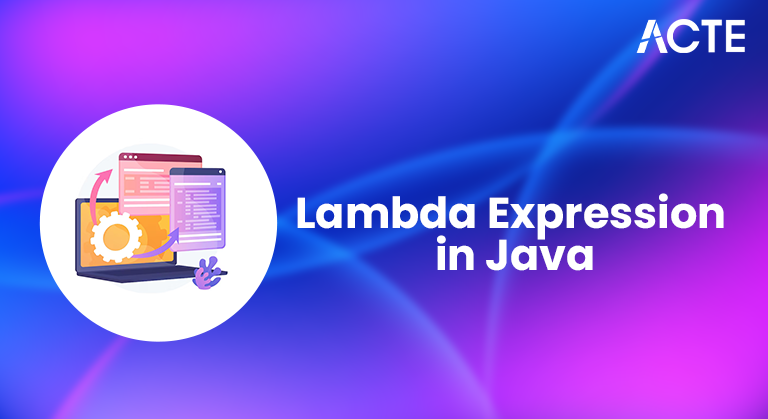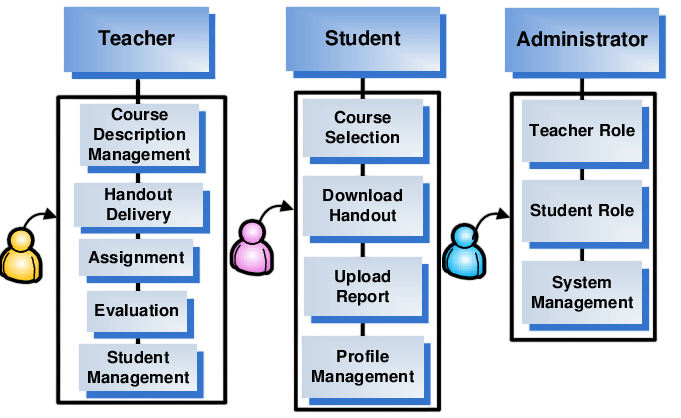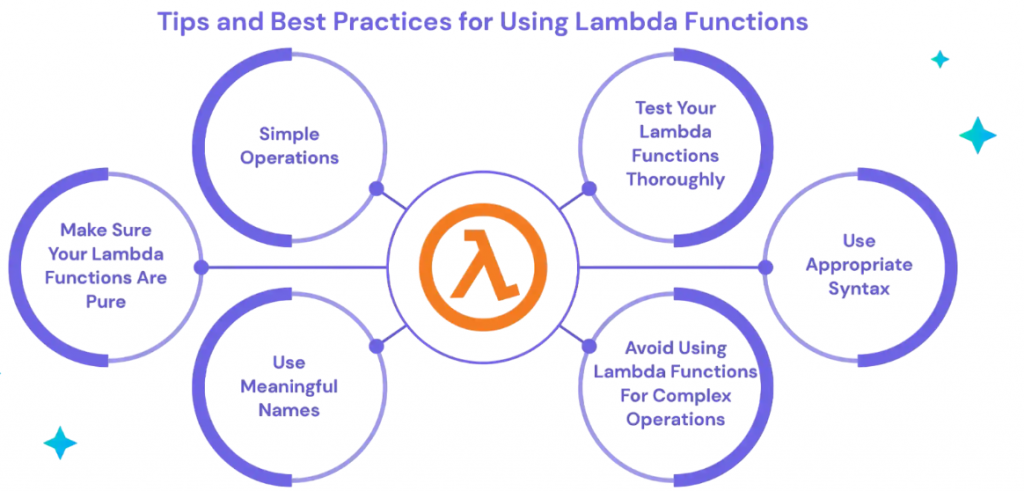
- Introduction to Functional Programming in Java
- What is a Lambda Expression in Java?
- Syntax of Lambda Expression in Java
- Functional Interfaces and Their Role
- Benefits of Using Lambda Expressions
- Lambda with Collections and Streams API
- Passing Lambda as Arguments
- Lambda vs Anonymous Inner Classes
- Common Use Cases (Sorting, Filtering, Iterating)
- Scope and Variable Capture in Lambdas
- Limitations and Things to Avoid
- Best Practices
- Summary
Introduction to Functional Programming in Java
With the release of Java 8, functional programming capabilities were added to the object-oriented Java language. Functional programming emphasizes the use of functions as first-class citizens functions that can be passed as arguments, returned from other functions, or assigned to variables. To complement such programming paradigms with practical development skills, exploring Web Developer Training equips learners to apply functional concepts in JavaScript and modern frameworks enabling cleaner code, reusable components, and efficient state management across dynamic web applications. Java 8 introduced key features such as lambda expressions, method references, and the Streams API to support a declarative and concise coding style. These enhancements enable Java developers to write cleaner, more efficient, and expressive code, especially when working with collections and concurrency.
To Earn Your Web Developer Certification, Gain Insights From Leading Web Developer Experts And Advance Your Career With ACTE’s Web Developer Courses Today!
What is a Lambda Expression in Java?
A lambda expression in Java is a concise way to represent an anonymous function, a block of code that can be passed around and executed later. Lambdas are used primarily to implement functional interfaces, allowing developers to treat functionality as data. This means that rather than writing verbose class or method declarations, developers can define functionality inline. To complement such concise coding techniques with graphical programming capabilities, exploring Virtual Instrumentation using Labview reveals how engineers can build custom instruments using dataflow logic and symbolic representations streamlining measurement, control, and automation tasks through an intuitive visual interface. A lambda has no name and does not belong to any class directly, though it can be assigned to a variable or passed as an argument.
Syntax of Lambda Expression in Java
The basic Syntax of Lambda Expressions is: `(parameters) -> expression`. To complement such concise functional programming constructs with efficient build automation tools, exploring Gradle vs Maven reveals how these tools streamline project compilation, dependency management, and testing workflows each offering distinct scripting styles, performance optimizations, and integration capabilities for modern Java development.
- // No parameter
- () -> System.out.println(“Hello, World!”)
- // One parameter
- name -> System.out.println(“Hello ” + name)
- // Multiple parameters
- (a, b) -> a + b
- // Block body with return
- (a, b) -> {
- int sum = a + b;
- return sum;
- }
The arrow operator (->) separates the parameter list from the body. The compiler uses type inference, often making explicit data types optional. However, for clarity or in complex scenarios, types can still be declared.
Would You Like to Know More About Web Developer? Sign Up For Our Web Developer Courses Now!
Functional Interfaces and Their Role
A functional interface is an interface that contains exactly one abstract method. Lambda expressions can only be used with such interfaces.

Java 8 introduced the FunctionalInterface annotation to indicate and enforce this property at compile time. To complement such asynchronous and functional programming techniques with controlled execution timing, exploring Python Sleep Method reveals how developers can pause thread execution for precise intervals enabling timed retries, dramatic output effects, and synchronization in multi-threaded Python applications.
- @FunctionalInterface
- interface Greeting {
- void sayHello(String name);
- }
- // A lambda can now be assigned:
- Greeting g = name -> System.out.println(“Hello, ” + name);
java.util.function package includes:
- Predicate<T>: returns boolean
- Function<T, R>: takes T and returns R
- Consumer<T>: takes T, returns void
- Supplier<T>: returns T
Java provides several built-in functional interfaces in the
Benefits of Using Lambda Expressions
Lambda expressions provide several key benefits: they simplify code by removing boilerplate, enable concise function definitions, and support functional programming paradigms like callbacks and event handling. To complement such modern coding practices with full-stack development expertise, exploring Web Developer Training equips learners to apply lambda-style logic in JavaScript, React, and Node.js building responsive, modular web applications with clean, maintainable code.
- Conciseness: Eliminates the need for anonymous inner classes.
- Improved Readability: Focuses on the logic, not the boilerplate.
- Ease of Use with Collections: Especially powerful with Java Streams.
- Parallelism: Encourages functional-style coding that’s inherently parallelizable.
- Flexibility: Functions can be passed as data, enabling higher-order functions and callbacks.
In essence, lambdas make Java more expressive and bring it closer to modern functional programming languages.
Are You Interested in Learning More About Web Developer? Sign Up For Our Web Developer Courses Today!
Lambda with Collections and Streams API
Lambdas shine when used in conjunction with the Collections framework and Streams API introduced in Java 8. You can filter, map, sort, or reduce data in collections using concise lambda expressions. To complement such functional programming techniques with language-level comparisons, exploring Kotlin vs Python reveals how Kotlin’s statically typed syntax and seamless Java integration contrast with Python’s dynamic typing and expressive readability helping developers choose the right tool for scalable, maintainable, and efficient application development.
Filtering with Stream:
- List<String> names = Arrays.asList(“Alice”, “Bob”, “Charlie”);
- names.stream()
- .filter(name -> name.startsWith(“A”))
- .forEach(System.out::println);
Sorting with Comparator:
- List<Integer> numbers = Arrays.asList(4, 2, 7, 1);
- numbers.sort((a, b) -> a – b);
The use of lambda expressions with streams leads to highly readable and declarative code that is easy to understand and maintain.
Passing Lambda as Arguments
Lambda expressions can be passed as method arguments, making it easier to define behavior inline without the need for verbose anonymous classes. To complement such concise functional programming techniques with streamlined application development, exploring Spring Boot vs Spring MVC reveals how Spring Boot simplifies setup through auto-configuration and embedded servers, while Spring MVC offers granular control over HTTP request handling helping developers choose the right framework based on flexibility, speed, and deployment needs.
- public void process(Greeting g) {
- g.sayHello(“John”);
- }
- process(name -> System.out.println(“Hi ” + name));
This is particularly useful in APIs where behavior is customizable, such as GUI event handlers or business rule processors.
Lambda vs Anonymous Inner Classes
Before Java 8, developers used anonymous inner classes to implement interfaces or override methods inline. However, they are verbose and syntactically heavy. To complement such legacy coding practices with real-world career insights, exploring IT Engineer Salary reveals how professionals skilled in modern frameworks, cloud infrastructure, and scalable systems earn competitive compensation across India with salaries ranging from ₹5 LPA to ₹20+ LPA depending on experience, location, and company tier.
- // Anonymous Class
- Runnable r = new Runnable() {
- public void run() {
- System.out.println(“Running…”);
- }
- };
- // Equivalent Lambda
- Runnable r = () -> System.out.println(“Running…”);
Key Differences:
- Lambdas are more concise.
- They do not have a type like anonymous classes; their type is inferred.
- Lambdas cannot access this as referring to themselves, while in anonymous classes, this refers to the instance of the anonymous class.
- Lambdas don’t support multiple methods, only work with functional interfaces.
This feature makes switch-case much more expressive and suitable for modern programming.
Common Use Cases (Sorting, Filtering, Iterating)
Lambda expressions are widely used for:
- Sorting Collections: list.sort((s1, s2) -> s1.length() – s2.length());
- Filtering Data: items.stream().filter(item -> item.getPrice() < 100).collect(Collectors.toList());
- Iterating Over Lists: items.forEach(item -> System.out.println(item));
- Event Handling (GUI): button.setOnAction(e -> System.out.println(“Button clicked!”));
These examples showcase how lambdas enhance conciseness, readability, and functional-style programming in Java.
Scope and Variable Capture in Lambdas
Lambdas in Java can capture variables from the enclosing scope, but they must be effectively final. This means the variable must not be reassigned after initialization. To complement such scope-sensitive behavior with practical package management in Python, exploring What is pip reveals how pip simplifies dependency handling allowing developers to install, upgrade, and manage Python libraries efficiently across environments using intuitive command-line tools.
- int multiplier = 2;
- List<Integer> list = Arrays.asList(1, 2, 3);
- list.forEach(n -> System.out.println(n * multiplier));
Attempting to modify the multiplier afterward will cause a compilation error. Lambdas are treated similarly to closures, where they close over variables from their environment, but Java enforces immutability for safety and consistency.
Limitations and Things to Avoid
- Limited Debugging: Stack traces can be cryptic compared to named classes.
- No State: Cannot maintain internal state across multiple calls unless managed externally.
- No Method Overloading in Lambdas: Method signature ambiguity can confuse the compiler.
- Not Suitable for All Scenarios: For complex behaviors, using classes or methods might still be better.
Understanding these pitfalls helps developers decide when lambdas are appropriate and when to opt for traditional methods.
Best practices
- Use lambdas to simplify boilerplate code in collections and callbacks.
- Prefer using built-in functional interfaces (like Predicate, Function, Consumer) when possible.
- Keep lambda bodies short and focused to avoid complex logic.
- Ensure variables used inside lambdas are effectively final.
- Avoid using lambdas in situations where readability or debugging is impacted.
- Use method references (::) when lambdas merely call an existing method.

Summary
Lambda Expressions in Java are a great addition that improves how developers write code. They let you express behavior more clearly and compactly. This feature is especially helpful when using the Streams API, which changes how collections are processed. Lambdas reduce the amount of repetitive code often required in traditional programming styles. By allowing the use of functional interfaces, lambda expressions can be easily passed around, stored for later use, or executed immediately. To complement such functional programming techniques with practical front-end and back-end skills, exploring Web Developer Training equips learners to build scalable web applications leveraging JavaScript callbacks, asynchronous patterns, and modern frameworks that embrace declarative and functional paradigms. This flexibility makes Java programming more expressive and fits well with modern coding practices. Overall, lambda expressions mark an important shift towards functional-style programming in Java. They make it easier for developers to create efficient and readable code.





